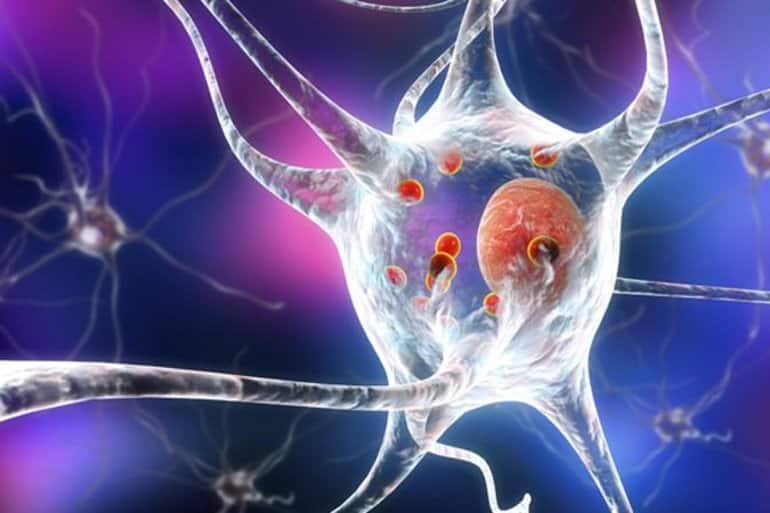Summary: Study reports a significant number of people with Parkinson’s disease have precise deficits when learning from instructions. Researchers say the problems are associated with differences in brain function.
Source: University of Westminster
A new study led by Dr Beth Parkin, Senior Lecturer in Psychology from the Cognitive Neuroscience Group at the University of Westminster, has discovered that a substantial proportion of people with Parkinson’s disease have precise deficits when learning from instructions, and these problems are associated with differences in brain functioning.
New collaborative research conducted by Dr. Parkin at Westminster and a team led by Professor Adam Hampshire at Imperial College London examined the brain activity and behavior of people with Parkinson’s disease, age-matched controls, and younger adults.
The team found that the patients who showed problems learning new rules did so because of deficits early in the learning process when new representations are bound or encoded in memory. However, once memories are made, these people did not have problems with forgetting.
The study, published in Brain Communications, investigated these deficits further using multiple brain scanning techniques including functional Magnetic Resonance Imaging (fMRI) which shows where blood flows in the brain, as well as MR Spectroscopy which shows the chemical composition of the brain.
People with Parkinson’s presenting problems learning new rules showed abnormalities in brain activity at the point when new memories were being made. These included reduced activation in regions associated with learning in the frontal, parietal, and anterior caudate parts of the brain.
These problems were also associated with lower levels of GABA in the prefrontal cortex, which is the main inhibitory neurotransmitter or chemical messenger in the brain.
Parkinson’s disease causes varying problems of memory and mental functioning both in terms of type and rate of decline, therefore a deeper understanding of these problems is crucial as they predict decreased quality of life in those affected. An inability to learn new rules from instructions is central to a person’s functioning as this ability is ubiquitous in everyday life, as making use of explicit instructions is the most efficient way to learn novel goal-directed behaviors.

The researchers hope that this work could aid the development of personally tailored treatment approaches. For example, bespoke therapies could be designed that target the specific neural systems disrupted determined by a detailed characterization of cognitive impairments.
Talking about the research, Dr. Beth Parkin said: “These findings not only tell us about the brain mechanisms underpinning the cognitive problems experienced in people with Parkinson’s, but they also have clinical implications.
“In particular, the problems detected here are likely to interfere with other clinical assessments of mental functioning, as they all rely on the patient’s ability to learn from instructions. Therefore, we recommend the assessment of instruction-based learning as an important first step before other neuropsychological assessments are undertaken.”
About this Parkinson’s disease research news
Author: Press Office
Source: University of Westminster
Contact: Press Office – University of Westminster
Image: The image is in the public domain
Original Research: Open access.
“Dissociable effects of age and Parkinson’s disease on instruction-based learning” by Beth Parkin et al. Brain Communications
Abstract
Dissociable effects of age and Parkinson’s disease on instruction-based learning
The cognitive deficits associated with Parkinson’s disease vary across individuals and change across time, with implications for prognosis and treatment. Key outstanding challenges are to define the distinct behavioural characteristics of this disorder and develop diagnostic paradigms that can assess these sensitively in individuals.
In a previous study, we measured different aspects of attentional control in Parkinson’s disease using an established fMRI switching paradigm. We observed no deficits for the aspects of attention the task was designed to examine; instead those with Parkinson’s disease learnt the operational requirements of the task more slowly. We hypothesized that a subset of people with early-to-mid stage Parkinson’s might be impaired when encoding rules for performing new tasks.
Here, we directly test this hypothesis and investigate whether deficits in instruction-based learning represent a characteristic of Parkinson’s Disease. Seventeen participants with Parkinson’s disease (8 male; mean age: 61.2 years), 18 older adults (8 male; mean age: 61.3 years) and 20 younger adults (10 males; mean age: 26.7 years) undertook a simple instruction-based learning paradigm in the MRI scanner.
They sorted sequences of coloured shapes according to binary discrimination rules that were updated at two-minute intervals. Unlike common reinforcement learning tasks, the rules were unambiguous, being explicitly presented; consequently, there was no requirement to monitor feedback or estimate contingencies.
Despite its simplicity, a third of the Parkinson’s group, but only one older adult, showed marked increases in errors, 4 SD greater than the worst performing young adult. The pattern of errors was consistent, reflecting a tendency to misbind discrimination rules.
The misbinding behaviour was coupled with reduced frontal, parietal and anterior caudate activity when rules were being encoded, but not when attention was initially oriented to the instruction slides or when discrimination trials were performed. Concomitantly, Magnetic Resonance Spectroscopy showed reduced gamma-Aminobutyric acid levels within the mid-dorsolateral prefrontal cortices of individuals who made misbinding errors.
These results demonstrate, for the first time, that a subset of early-to-mid stage people with Parkinson’s show substantial deficits when binding new task rules in working memory. Given the ubiquity of instruction-based learning, these deficits are likely to impede daily living. They will also confound clinical assessment of other cognitive processes.
Future work should determine the value of instruction-based learning as a sensitive early marker of cognitive decline and as a measure of responsiveness to therapy in Parkinson’s disease.






